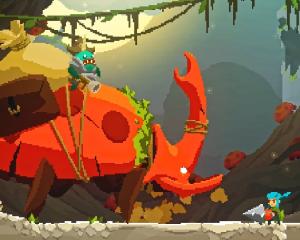Sid Meier's Civilization: The Board Game
Publisher: Fantasy Flight Games
Price: $87
Age rating: 13+
The basics will be familiar to Civilization veterans: Choose a culture, establish a capital city, explore the world, establish new settlements and deal with other civilizations.
There are six cultures to choose from, each with a unique trait and starting technology - the Egyptians start with a Wonder of the ancient world and the Construction technology, for instance.
To build higher levels of technology, players must have enough of the lower ones to create a pyramid, with each card a "brick".
So, to build a Level III technology, a player must have at least three Level I cards and two Level II cards.
To research the only Level V tech, Space Flight, and win the game, a player must have at least 14 lower-level technologies.
Players also can win by amassing 15 coins, conquering any other player's capital city, or generating and spending enough culture to reach the end of the game's culture track.
Each space of the track offers a powerful Culture Event card or the opportunity to draw a Great Person, which grants a bonus to the city they're settled in.
A player's cities are the engine.
Each city (up to three) occupies a square on the map, and anything in the eight surrounding squares belongs to that city.
Players can construct buildings on those squares to boost their production, trade points - used for researching technology and boosting production - culture and military power.
Each turn, a city can perform one action: dedicate itself to the arts, earning a culture token for itself and every column on the spaces surrounding it; harvest a resource; or build a unit, plastic figure, building or Wonder (expensive structures with unique effects) if it has the production capacity.
There are two kinds of plastic figures: Scouts, which can discover unrevealed areas of the game board, establish new cities or send distant resources back to a city; and armies, which can take over peaceful hut tokens for a free resource, battle hostile village tokens for a reward, or attack enemy players' armies or cities.
Armies only represent the force's location; battles are carried out with cards drawn from the player's deck of units, playing out in a rock-paper-scissors mechanic - units assigned to attack each other normally deal damage simultaneously, but each standard unit type (infantry, mounted and artillery) trumps one other and deals its damage first against that type.
Aircraft simply do heavy damage












